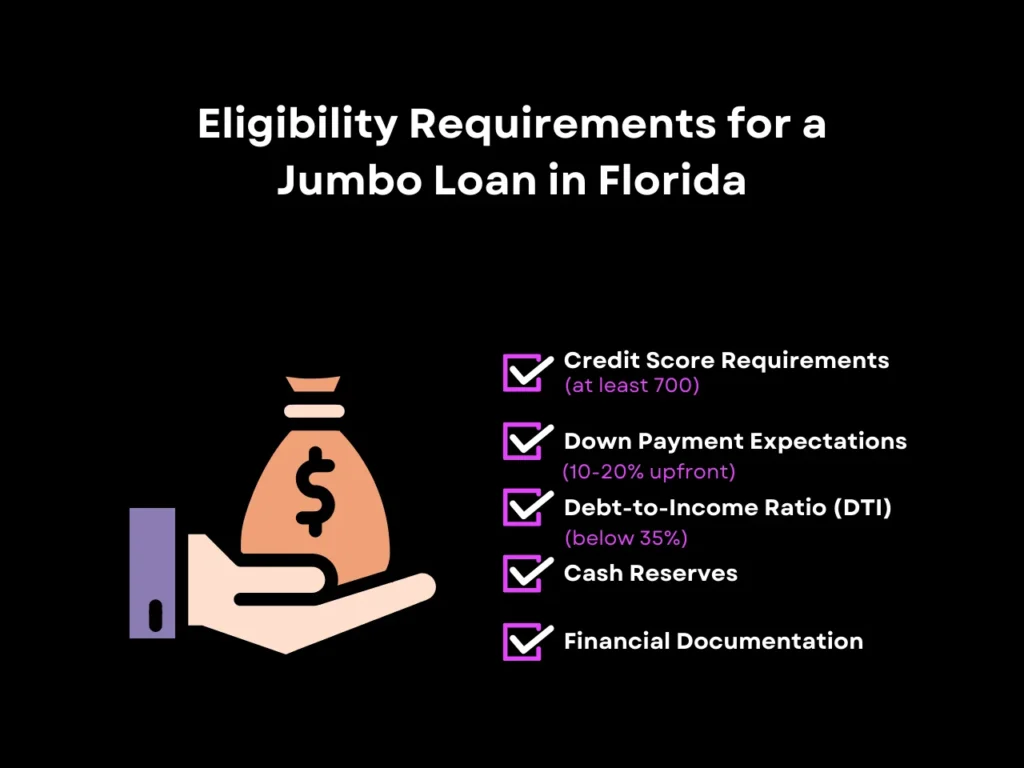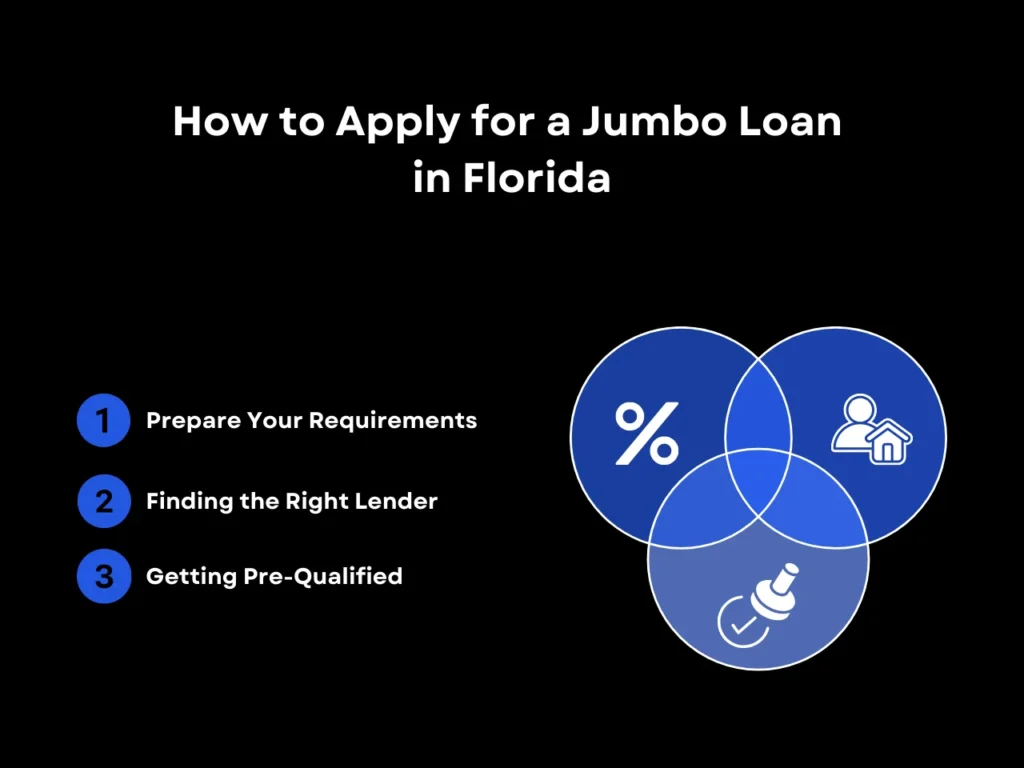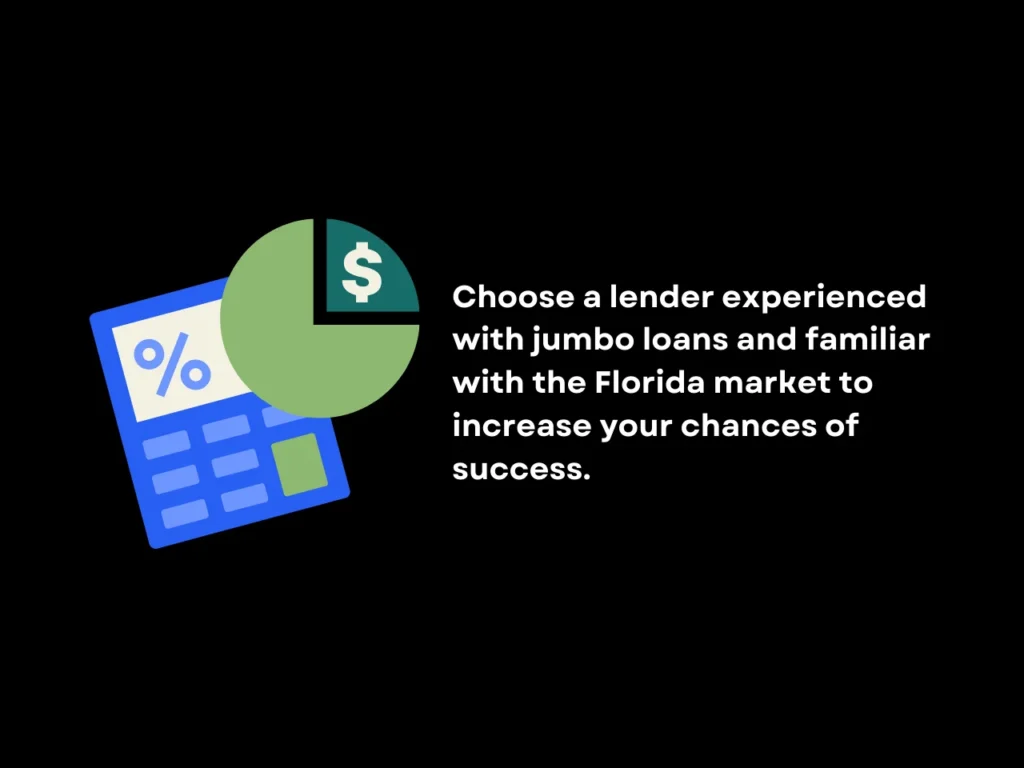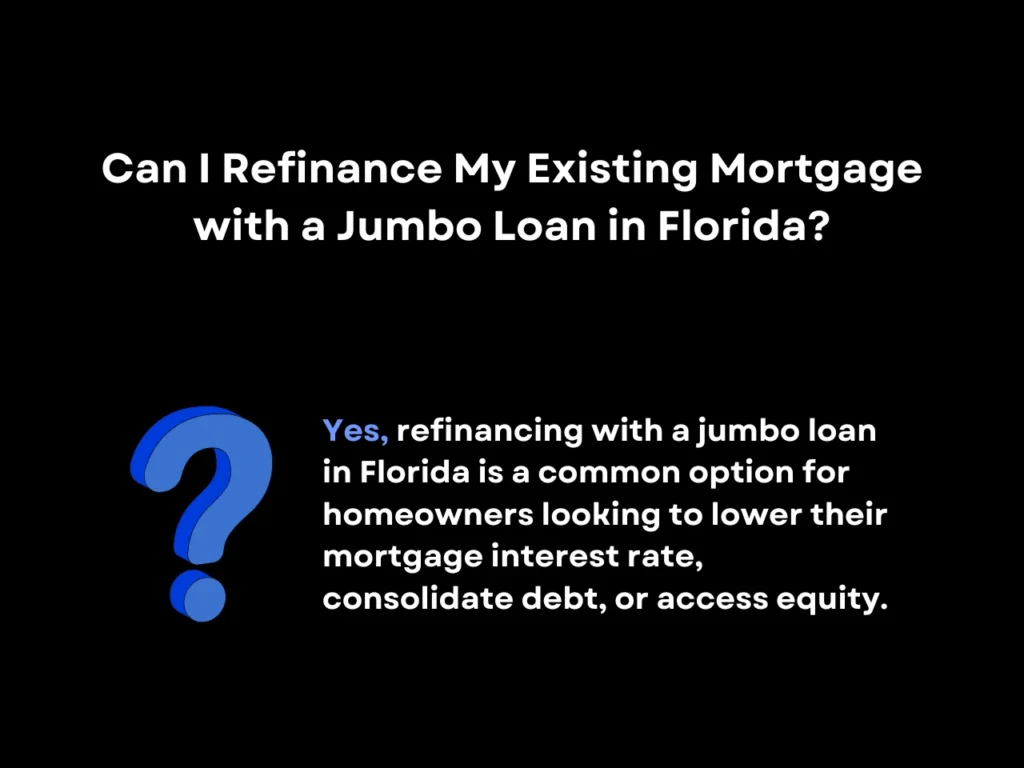Florida property values are on the rise, especially since the migration waves of the early 2020s. As a result, some of the higher-end pieces of real estate, and sometimes even modest housing, can now exceed the conforming loan limits set by the Federal Housing Finance Agency (FHFA). In these cases, a jumbo loan Florida can be the best solution for those who want to purchase more expensive properties.
At Defy Mortgage, we provide both traditional and non-traditional lending solutions that can be tailored to fit any scenario, from jumbo loans to FHA loans and everything in between. Our streamlined process makes it easier than ever to secure real estate, whether it’s a primary home, second home, or investment property. Whatever your needs, our mortgage experts can find the best solution for your unique situation.
With our substantial experience in various mortgage solutions, we’ve written this blog to serve as an all-inclusive guide to jumbo loans in Florida. We’ll discuss loan limits and eligibility requirements and best practices for getting the most out of this loan type in the Sunshine State.
Let’s dive right in.
What Is a Jumbo Loan Florida?

A jumbo loan Florida is a mortgage product for purchasing Florida properties priced above the FHFA’s conforming loan limits. Jumbo loans are geared towards high-net-worth individuals, entrepreneurs, freelancers, and self-employed professionals.
Unlike conventional loans, jumbo loans cannot be purchased by Fannie Mae or Freddie Mac, so private lenders set stricter qualifications. Similar to standard mortgages, however, these loans typically come in adjustable-rate or fixed-rate terms of 10, 15, 20, or 30 years, depending on the lender’s offerings.
Current Jumbo Loan Limits in Florida

Once the price of a property exceeds the conforming loan limit in its county, it is then eligible for purchase with a jumbo loan. In 2024, the baseline conforming loan limit across the US is $766,550, which applies across most of Florida except Monroe County, where the limit is $929,200. Any property more expensive than these will no longer be eligible for purchase with a loan backed by a government entity like Fannie Mae or Freddie Mac. On the other hand, the lender tends to define the upper limits on jumbo loans.
Eligibility Requirements for a Jumbo Loan in Florida
Jumbo mortgages present a higher risk to lenders, chiefly because of how big the loan amounts are so you can expect more stringent criteria than conventional mortgages. Here are the primary requirements you need to meet to qualify for a jumbo loan in Florida.

Credit Score Requirements
Lenders take on significantly higher risk because of jumbo loans’ high loan amounts. At Defy, we typically look for a FICO score of at least 700. Higher credit scores unlock higher loan amounts, so if the property you want to purchase is in the neighborhood of $2,000,000 or above, it’s often best to raise your FICO score to 720 or more.
Down Payment Expectations
Unlike conventional loans that may allow for down payments as low as 3%, jumbo loan lenders generally require 10-20% upfront for single-family units, even for borrowers with a good credit score. The percentage may be higher for multi-family units or if the property is intended to be a second home because of their added risks (multi-families are more expensive, while second homes are less of a priority for borrowers and are thus more likely to default). Your credit score and loan amount can also affect your minimum down payment.
Higher down payments reduce the risk that lenders take on and make it more likely for them to recoup their financial losses by selling the property in the event of a default. With a jumbo loan, these financial losses can be worth several million dollars, making larger down payments more imperative for lenders to enforce.
Debt-to-Income Ratio (DTI)
Your debt-to-income ratio (DTI) is the ratio between your monthly income before taxes and your monthly debt payments. In other words, you can find your DTI ratio by dividing your monthly debt by your monthly income. For example, if your income is $5,000 monthly and you pay $1,500 in credit card bills and other debt payments, your DTI ratio is 30%. Keeping your DTI ratio below 35% is usually best to get the best loan terms.
A borrower’s maximum DTI ratio to be approved for a jumbo loan is 43%, similar to most conventional mortgages. This means you have more than half of your income left over after paying off all your outstanding debts, which communicates to lenders that you have enough cash flow to cover mortgage payments while still paying for your everyday expenses. If your DTI is above the maximum allowed by the lender, you may still be able to qualify if you make a bigger down payment or if you have an exceptionally high credit score.
Cash Reserves
Jumbo lenders often require borrowers to show liquid assets covering several months of mortgage payments. This assures financial stability, guaranteeing they won’t miss payments even if their regular income is disrupted. At Defy, we require that borrowers have at least 6 months’ worth of mortgage payments, though having 12 months of cash is ideal.
Financial Documentation
As with many other loan types, jumbo loan lenders usually ask for documentation of income and assets to verify your cash flow and potential money sources. For this, they typically accept asset statements, bank statements, investment statements, tax returns, gift letters if you accept gift funds for down payment or mortgage payments, and W2 or 1099 income.
How to Apply for a Jumbo Loan in Florida
Applying for a jumbo loan in Florida follows many of the same conventions as applying for a traditional mortgage. However, there are certain best practices in the loan process. Follow these key steps when applying for a Florida jumbo mortgage.

Step 1: Prepare Your Requirements
Before everything else, ensure all the eligibility requirements have been met. Here’s how you can get started:
- Review Your Credit Reports: Start by reviewing your credit reports for accuracy. Dispute any discrepancies before your application.
- Calculate Your DTI Ratio: Determine if your debt-to-income (DTI) ratio is below the 43% threshold most mortgage lenders define.
- Improve Your Financial Profile: To maximize your chances of being approved for a jumbo loan and secure ideal loan terms, consider raising your credit score or consolidating debt.
Ensure your essential documents, such as bank and asset statements, are on hand. Documentation of your primary income sources is the highest priority since lenders will look for this first. Preparing all of the necessary documentation will help speed up the jumbo loan approval process, which can take longer than a conventional loan due to the higher risk of requiring more verification.
Step 2: Finding the Right Lender

The right lender for you will ultimately depend on which best meets your needs. However, you can get the best chances of success by preferring lenders experienced in jumbo loans and familiar with the Florida real estate market. Local expertise can ensure fairer terms, better-tailored guidance, and a smoother application process overall.
Step 3: Getting Pre-Qualified
Pre-qualification helps you understand your borrowing potential and strengthens your position when making an offer on a property. By submitting your financial information to the lender, they can provide an initial estimate of the loan amount you may be eligible for. While pre-qualification doesn’t guarantee approval, it helps you set realistic expectations and ensures you’re financially prepared to proceed.
This step also makes you a more attractive buyer in Florida’s competitive real estate market, giving you an edge over competing bidders. Sellers are more likely to take your offers seriously if you’ve been pre-qualified, as it demonstrates financial credibility. Pre-qualification can be completed quickly, often online or via phone, and typically involves a soft credit inquiry so that it won’t affect your credit score.
Jumbo Loan Florida FAQ
What is the minimum credit score for a jumbo loan in Florida?
Most lenders require a minimum credit score between 660 and 720, though higher scores may qualify you for better rates. At Defy, we look for a minimum FICO score of 700.
How much down payment do I need for a jumbo loan in Florida?
Down payments for jumbo loans average around 20%. However, depending on the lender, the borrower’s financials, and the loan specifics, such as loan size, they can be as low as 10%, as high as 25%, or even more.
Are jumbo loan interest rates higher than conventional loan rates?
Yes, jumbo mortgage rates can be slightly higher due to increased risk for lenders. The average 30-year fixed jumbo mortgage has a rate of 6.95%, compared to 6.78% for conventional mortgages.
Can I use a jumbo loan to buy a vacation home in Florida?
Absolutely. Many buyers use jumbo loans to finance secondary homes or investment properties in Florida’s prime locations. They’re particularly useful in Monroe County, home of the Florida Keys, one of the most popular tourist destinations in the United States. Monroe County property values frequently breach $1,000,000, surpassing the county’s conforming limit of $929,200, so jumbo loans are often the primary way to purchase a vacation home in the area.
Can I refinance my existing mortgage with a jumbo loan in Florida?

Yes, refinancing with a jumbo loan in Florida is a common option for homeowners looking to lower their mortgage interest rate, consolidate debt, or access equity. Many lenders offer jumbo loan refinancing, but eligibility requirements are similar to those for purchasing, including a strong credit score, low debt-to-income ratio, and significant home equity. Refinancing can be particularly beneficial if home values in your area have increased, allowing you to access more favorable terms.
Key Takeaway
A jumbo loan Florida can provide you with the financial leverage you need to purchase properties outside the FHFA’s conforming loan limits. Whether it’s a luxury property or a modest single-family unit in a high-demand area, some properties cost much more than Freddie Mac or Fannie Mae can back up. Jumbo mortgage loans let borrowers work around that limitation.
If you’re interested in a jumbo loan in Florida, remember to gather all of your necessary documentation ahead of time, seek out Florida lenders experienced in jumbo loans, and consider getting pre-qualified. These steps will streamline the loan process and maximize your chances of getting the best loan terms.
Are you curious about jumbo loans and alternatives like bank statement loans and DSCR loans? Schedule an appointment with Defy today and let our mortgage experts brief you on your loan options and give you personalized advice on your best moves.




